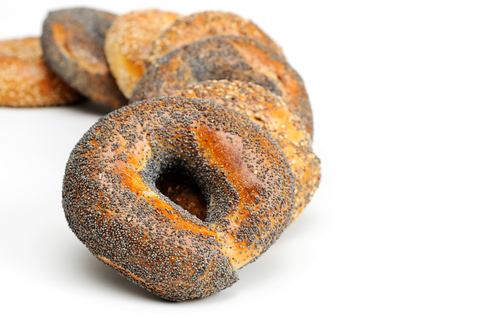 If you have arthritis, you’re probably all too familiar with the pain, swelling and joint stiffness characteristic of this disease. With osteoarthritis, the most common form, which impacts 27 million Americans, this pain is the result of the breakdown of cartilage in the joint itself, often from accumulated wear and tear.
If you have arthritis, you’re probably all too familiar with the pain, swelling and joint stiffness characteristic of this disease. With osteoarthritis, the most common form, which impacts 27 million Americans, this pain is the result of the breakdown of cartilage in the joint itself, often from accumulated wear and tear.
With rheumatoid arthritis, an autoimmune disease that impacts an estimated 2 million Americans, chronic inflammation of the joints leads to pain, stiffness and swelling.
You may have already realized that certain foods cause a flare-up of your symptoms, and if so, rest assured it’s not all in your head. Science shows that certain foods do indeed impact the progression of this disease. The foods that follow are among them, impacting arthritis significantly — and not in a good way.
Top 8 Foods to Avoid With Arthritis
8. Empty Calories
Jelly beans, energy drinks, pastries, fruit drinks, and cakes are examples of empty calories, foods that contain little or no nutritional value, but which can easily add more inches to your waistline. Excess weight increases the load placed on your joints, which may not only speed the breakdown of cartilage, but also may make joint pain and swelling worse.
Further, fat tissue in your body releases pro-inflammatory chemicals, such as cytokines, which can influence the development of arthritis. Losing even a small amount of weight may have a beneficial impact on your risk of developing arthritis, as well as your current symptoms.
7. Gluten
 Although a formal link has yet to be established, joint pain is a common symptom described by people with gluten sensitivity, or gluten intolerance. In people who are sensitive, gluten, a protein found in wheat, rye and barley, may provoke an innate immune response that may trigger symptoms such as joint pain hours or days after the gluten is consumed.
Although a formal link has yet to be established, joint pain is a common symptom described by people with gluten sensitivity, or gluten intolerance. In people who are sensitive, gluten, a protein found in wheat, rye and barley, may provoke an innate immune response that may trigger symptoms such as joint pain hours or days after the gluten is consumed.
To find out if gluten may be contributing to your arthritis symptoms, eliminate it from your diet for 2 weeks, then slowly reintroduce them and watch for any symptom flare-ups.
6. Nightshade Vegetables
Nightshade vegetables, including potatoes, tomatoes, eggplant, peppers and tobacco, contain calcitriol, an active form of vitamin D that may lead to calcium deposits in soft tissues such as tendons, ligaments, cartilage and joints if overconsumed.[i] This may cause or contribute to inflammation and joint pain, particularly in those who are sensitive. As with gluten, an elimination diet can help you determine if nightshade vegetables are problematic for you.
5. Vegetable Oils (Common in Processed Foods and Fast Foods)
Soybean, corn, peanut, safflower and sunflower oils are examples of vegetable oils that are rich in omega-6 fats, which most Americans consume far too much of. It’s not only a matter of the oil you use for cooking at home … far more so it’s the vegetable oils added to just about every processed food that end up being a problem.
Eating too many of these omega-6 fats may increase inflammation in your body, which may make your arthritis symptoms worse.
4. Refined Carbs
Do you notice that your joints seem achier when you’ve been eating a lot of muffins, bagels, cookies, doughnuts or pasta? This may be because these refined carbs lead to spikes in your blood sugar and insulin, and in turn increase body-wide inflammation significantly.[ii]
3. Synthetic Trans Fats
You should limit your intake of trans fats, common in partially hydrogenated oils, as much as possible. Trans fats are strongly linked to systemic, chronic inflammation,[iii] which is at the root of many arthritis symptoms. Common foods that contain trans fats include savory snacks (like microwave popcorn), fried foods, frozen pizzas, cake, cookies, pie, margarines and spreads, ready-to-use frosting, and coffee creamers.
2. Blackened and Barbecued Foods
Foods cooked at high temperatures — including char-broiled, blackened, barbecued, fried, etc. — often contain harmful byproducts of the cooking process called advanced glycation end products (AGEs). AGEs are highly inflammatory and can damage your tissues,[iv] making your arthritis worse.
 1. Soda
1. Soda
Harvard researchers recently revealed that the more sugary soda men with knee osteoarthritis drink, the more likely the condition is to get worse.[v] Even though increased consumption of soda is linked to weight gain, a known risk factor for osteoarthritis, the link was true regardless of the men’s weight.
This suggests the soda itself may be responsible for worsening the arthritis, although a cause-and-effect link has not been proven.
Do YOU Have Arthritis?
Then DO NOT Miss This!!!
If you or someone you love suffers from arthritis, Dr. Mark Wiley’s new book called ARTHRITIS REVERSED is as “must read” as it gets! AND BEST OF ALL IT IS FREE TODAY!
Despite what the conventional medical industry would have you believe, you really CAN overcome arthritis for good (and all the suffering that comes with it), and in the clearest, easiest-to-understand way Dr. Wiley lays out exactly how to do so…
CLICK HERE NOW TO GET “ARTHRITIS REVERSED” – FREE TODAY!
[i] Weston A Price Foundation March 30, 2010



Great list Jessie!
I knew about most of them except for #2 (blackened and BBQd foods) and AGEs.
This article is just further proof that our diets can have huge impacts on our pain!
Keep up the good work Jessie.
Hi Jesse
Greetings from Malaysia and have been following your site for sometime now. Every time and always full of valuable info – couldn’t miss it when I open my emails. A lot of people are unaware of nightshades vegs and they blame it on old age and rain. Roast duck and goose are also bad not only for arthritis BUT as well as tumour.
God Bless and to your good health, peace and happiness.
Patricia
Milk , and calcium supplements are the #1 cause of joint pain, milk is no good for you after you stop growing, all it does is sour in your stomach and breeds bacteria that attach your joints, causing the pain. When you get to much calcium, your body starts to strip your bones of calcium aka thin bones, you get all the calcium your body needs from the food you eat. The foods for good joint health is fish, peanuts ( peanutbutter ), and cherrys ( cherry pies )
So according to this list it pretty much cuts most foods. I don’t,t do carbs for the most part
And It is saying I need to cut my calcium which you teeth and body needs. Pardon me but personally I don’t do bland food
IT”S GOOD INFORMATION FOR WHO SUFFER FROM INFLAMMATION
THANKS
KHALED
Bryce Thompson Elimination of milk from my diet not only cleared up my rheumatism, but cleared my sinus and eliminated my headaches. After I discovered the problem I have read as much on the subject as I can find and have done some experimenting. I tried raw milk with no problem, but have found recently that the raw milk that gave me no problems contained A2 Casein and that the milk that caused my problems probably contained A1 Casein. As far as the Calcium problem goes, yes; we get plenty of Calcium from our food, at least most of us do and excess calcium can make bones brittle. The big problem with osteoporosis and brittle bones seems to be a lack of Magnesium which has the effect of telling the calcium where to go, and an excessive milk intake can make bones brittle.
YES… dairy products are not healthy, unless you are a baby cow… they have been proven to wreak havoc in the body and I personally consume very little dairy, usually just a little butter.
I recommend you listen to my interview with Dr. Robert Thompson. author of “The Calcium Lie” as he explains in great detail the truth about calcium.
Find your site very informative and good..
You say vegetable oils are bad for us. You may be right, but what evidence do you have? Does this include coconut and olive oils which are usually regarded as being good oils? Also, if sunflower oil is bad, are sunflower seeds? Should we avoid eating all nuts and seeds, and other high fat fruits and vegetables like avocados?
Hey Pete – great questions!
You’ll find several references at the bottom of the article for more source information. I’d highly recommend getting and reading Nourishing Traditions by Sally Fallon (Morell) and Jesse’s new cookbook written with co-author Tiffany Harelik, The Live Pain Free Cookbook, which you can find here: https://secure.losethebackpain.com/products/live-pain-free-cookbook/110/sp-live-pain-free-cookbook
A few quick answers to your questions Sunflower oil is notoriously high in Omega-6 fatty acids. While required for health, most get an extreme imbalance of Omega-6 to Omega-3 (which should normally be consumed in close to a 1:1 ratio). This imbalance creates inflammation throughout the body.
Sunflower seeds and even sunflower oil is ok in moderation. However, most who use typical vegetable oils, eat processed foods and eat out – especially in fast food restaurants – already get too much of it.
Organic avocados and coconut are both great, especially coconut which is rich in medium-chain fatty acids. Organic coconut and organic extra virgin olive oils are typically your better choices for food preparation. So yes, use those first! 🙂
Again, you’ll learn much more about these topics in both books referenced above!
Best wishes,
Steve Coombes
Managing Editor, Live Pain Free